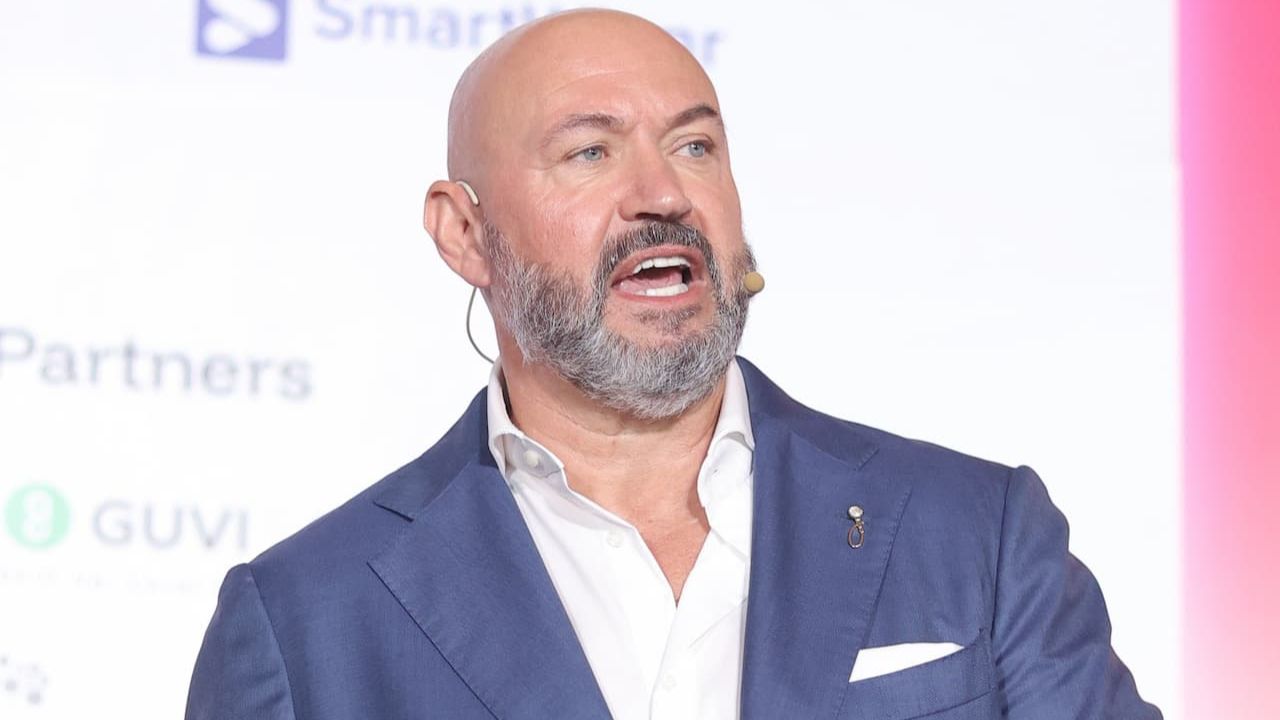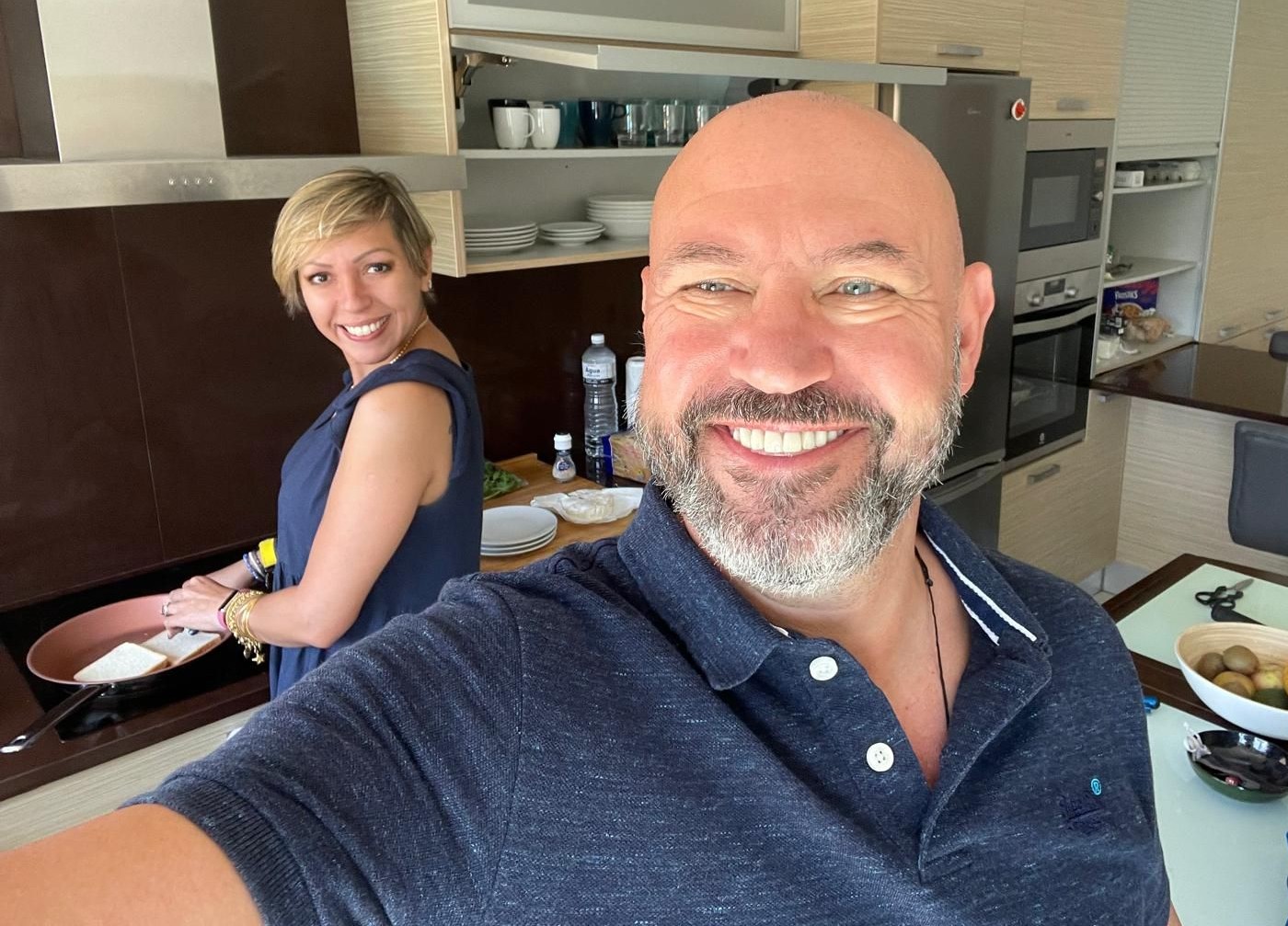How Much Should You Share Online? The Art of Authentic Transparency
Oct 17, 2025
How Much Should You Share Online? The Art of Authentic Transparency
People often ask me, "How did you become a motivational speaker?" It's a question that prompts reflection; not just about my career path, but about how much of ourselves we should reveal in our increasingly public digital lives.
On my About page, I share my story using the now-famous concept of "joining the dots backwards." I reveal that I was born in 1961, worked in my father's hardware shop from age ten, graduated as a physiotherapist, survived business disruption and divorce, moved across continents, raised three children, and eventually founded Self Leadership International in 1999. I even mention my health scare and my Brazilian wife.
That's a lot of personal information. So why share it?
The Paradox of Privacy in a Public World
We live in a fascinating paradox. We're constantly warned about protecting our privacy online, yet the most successful thought leaders, entrepreneurs, and influencers are often those who share generously. The question isn't really whether to share, but what to share and why.
Here's what I've learned about strategic vulnerability after two decades of public speaking and building a global business.
Share Your Journey, Not Just Your Destination
When I list my qualifications —physiotherapist, acupuncturist, NLP Master Trainer, CSP designation — these credentials might establish credibility, but they don't create a connection. What resonates with people is that I worked in my father's shop as a child, learning customer service while sorting nails and serving customers. They relate to the business disruption, the divorce, and the health scare.
Your struggles aren't weaknesses to hide; they're the very experiences that make your success meaningful to others.
The guideline: Share the challenges that shaped you, but only those you've processed and learned from. Raw, unhealed wounds aren't inspiring; they're concerning.
The Three-Question Filter

Before sharing anything online, I ask myself three questions:
- Is it relevant? Does this information help people understand my perspective, expertise, or journey?
- Is it resolved? Have I moved through this experience enough to share it with wisdom rather than pain?
- Is it mine to share? Does this story involve others who haven't consented to being part of my public narrative?
That third question is crucial. Notice I mention my Brazilian wife, but I don't detail our private moments or her personal struggles. I'm the father of three children, but I don't share their names, photos, or stories without their permission. My divorce is mentioned as a life event that taught me resilience, not as an opportunity to air grievances.
What to Always Protect
Some things should remain private, regardless of your platform or purpose:
- Financial specifics beyond what's necessary for your message
- Others' stories that aren't yours to tell
- Information that could compromise safety—your exact daily routines, children's schools, security details
- Medical details that go beyond what's instructive or inspiring
- Relationships in progress—talk about lessons learned, not about people you're currently navigating challenges with
The Professional Vulnerability Sweet Spot
As someone who's built a career as a "Catalyst for Change," I've found that the sweet spot lies in sharing enough to be relatable without oversharing to the point of unprofessionalism.
When I mention working with athletes and learning about performance under pressure, I'm not gossiping about clients; I'm sharing what I learned. When I talk about surviving business disruption, I'm offering wisdom, not complaining about competitors or economic conditions.
This is the art of transparency: being honest about the human experience while maintaining dignity, discretion, and professionalism.
Context Matters
What you share on LinkedIn differs from what you share on Instagram, which differs from what you share in a keynote speech. Your audience, platform, and purpose should shape your disclosure.
On my professional About page, I share my journey chronologically, highlighting the experiences that built my expertise. In a coaching session, I might share more nuanced personal insights. At a dinner party, I'd share differently still.
The principle: Match your level of sharing to the context and relationship.
The True Purpose of Sharing
Here's what I've discovered after speaking in 40 countries: people don't connect with your perfection. They connect with your authenticity.
When I share that I moved to Australia in 1985 to surf and windsurf and stayed for 18 years, I'm not just listing facts. I'm showing that life doesn't always follow a linear path. When I mention being "English by birth, Australian by passport, Brazilian by wife, and now living in Portugal after 17 years in Asia," I'm demonstrating that identity is complex and evolving.
These revelations give others permission to be complex, too. To have taken detours. To have reinvented themselves. To still be figuring it out.
Your Story Is Your Superpower—Use It Wisely
In an age of AI-generated content and carefully curated feeds, your authentic story is your most valuable asset. The experiences you've lived, the lessons you've learned, and the dots you can join backwards —these can't be replicated or automated.
But authenticity doesn't mean oversharing. It means sharing strategically, purposefully, and with consideration for yourself and others.
So how much should you share online?
Share enough to be real, but not so much that you're exposed. Share your journey, but protect your peace. Share your lessons, but respect others' privacy. Share your humanity, but maintain your dignity.
Most importantly, share with intention. Every story you tell should serve a purpose—to inspire, to teach, to connect, or to demonstrate a principle.
Because in the end, sharing online isn't about revealing everything. It's about revealing what matters.
What's your philosophy on sharing online? Have you found your balance between privacy and transparency? I'd love to hear your thoughts.
Get a FREE Chapter of The New Leadership Playbook
Stay connected with news and updates!
Join our mailing list to receive the latest news and updates from our team.
Don't worry, your information will not be shared.
We hate SPAM. We will never sell your information, for any reason.

